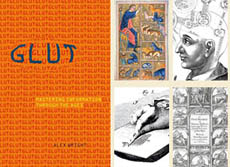The Rock Star's Burden
December 15, 2005
In this NYTimes Op-Ed, a Grinchy Paul Theroux makes the case against giving money to western aid organizations in Africa, echoing a few themes from his book Dark Star Safari:
I am not speaking of humanitarian aid, disaster relief, AIDS education or affordable drugs. Nor am I speaking of small-scale, closely watched efforts like the Malawi Children's Village. I am speaking of the "more money" platform: the notion that what Africa needs is more prestige projects, volunteer labor and debt relief. We should know better by now. I would not send private money to a charity, or foreign aid to a government, unless every dollar was accounted for - and this never happens. Dumping more money in the same old way is not only wasteful, but stupid and harmful.
...
Had Bono looked closely at Malawi he would have seen an earlier incarnation of his own Ireland. Both countries were characterized for centuries by famine, religious strife, infighting, unruly families, hubristic clan chiefs, malnutrition, failed crops, ancient orthodoxies, dental problems and fickle weather. Malawi had a similar sense of grievance, was also colonized by absentee British landlords and was priest-ridden, too.
...
Africa has no real shortage of capable people - or even of money. The patronizing attention of donors has done violence to Africa's belief in itself, but even in the absence of responsible leadership, Africans themselves have proven how resilient they can be - something they never get credit for. Again, Ireland may be the model for an answer. After centuries of wishing themselves onto other countries, the Irish found that education, rational government, people staying put, and simple diligence could turn Ireland from an economic basket case into a prosperous nation. In a word - are you listening, Mr. Hewson? - the Irish have proved that there is something to be said for staying home.
File under: Books
_____________________« Faith of Graffiti | Probability, Superstition and Ideology »
GLUT:
Mastering Information Through the Ages
New Paperback Edition
“A penetrating and highly entertaining meditation on the information age and its historical roots.”
—Los Angeles Times
